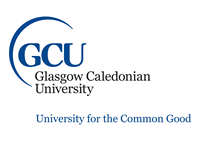Glasgow Caledonian University, The Glasgow School for Business and Society
Glasgow School for Business and Society | Glasgow Caledonian University | Scotland, UK (gcu.ac.uk)
Project reference number: GSBS/2023/007
Supervisory Team
Director of Studies: Prof Umut Korkut
Email: [Email Address Removed]
GCU Research Online URL: (essential) https://researchonline.gcu.ac.uk/en/persons/umut-korkut
2nd Supervisor: Dr Neil Russell
Email: [Email Address Removed]
GCU Research Online URL: (essential) https://researchonline.gcu.ac.uk/en/persons/neil-russell
3rd Supervisor: Dr James Foley
Email: [Email Address Removed]
GCU Research Online URL: (essential)
Background
During the COVID-19 Pandemic, states across the world were tasked with policy responses to protect citizen welfare, with the poor and vulnerable at particular risk. While the pandemic appears over, public governance and the extension of social protections to communities remains as important as ever. However, in the authoritarian contexts of Middle East and North African (MENA) states, achieving social protection presents a dilemma for leaders. States such as Egypt, Jordan, and Tunisia, among others, who do not benefit from the abundance of natural resources of oil-rich Gulf states, face pressures to increase public provisions of support yet with relatively scant resources. External support from international financial institutions such as the IMF and World Bank offers one option, yet previous neoliberal arrangements have curbed rather than enlarged the state’s functions. Moreover, in certain contexts, including Iraq, Lebanon and Syria, development aid can create stratified relationships between Muslim and non-Muslim populations in already disintegrated societies. Domestically, civil society actors, including voluntary associations and NGOs, can also be encouraged to provide welfare services to ease the burden on the state. Although this serves a social function, it also presents a political risk, for welfare provision has served as a source of support for Islamist political movements opposing the state. These issues raise several questions around social protections and the relative balance between state and society: How has social policy been reconfigured in MENA states during and after the COVID-19 pandemic? What role have external actors played in this process and how has this impacted internal political dynamics? Has this enlarged the space for civil society activity in the post-COVID landscape? What are the social outcomes for communities in need? This project will address Sustainable Development Goals via the challenge of Inclusive Societies by examining public policies around social welfare and its impact on communities in the MENA region.
How to Apply
This project is available as a 3 years full-time PhD study programme with expected start date of 02 October 2023.
Candidates are encouraged to contact the research supervisors for the project before applying.
Applicants are required to provide a detailed research proposal (2,000 words) as part of the application process.
Guidance on Writing a PhD Research Proposal is available at Prospective students | Glasgow Caledonian University | Scotland, UK (gcu.ac.uk)
Candidates should have a minimum of a first degree (2:1 or higher) and/or a Masters degree.
Please note that emails to the supervisory team or enquires submitted via this project advert do not constitute formal applications; applicants should apply using the on our Application Process page by choosing Economics and an October 2023 start date. Please quote project reference number: GSBS/2023/007 on your application.
Applicants shortlisted for the PhD project will be contacted for an interview within six weeks from the closing date. The closing date for applications is Friday the 21st April 2023.
Please send any other enquires regarding your application to: [Email Address Removed]

 Continue with Facebook
Continue with Facebook



